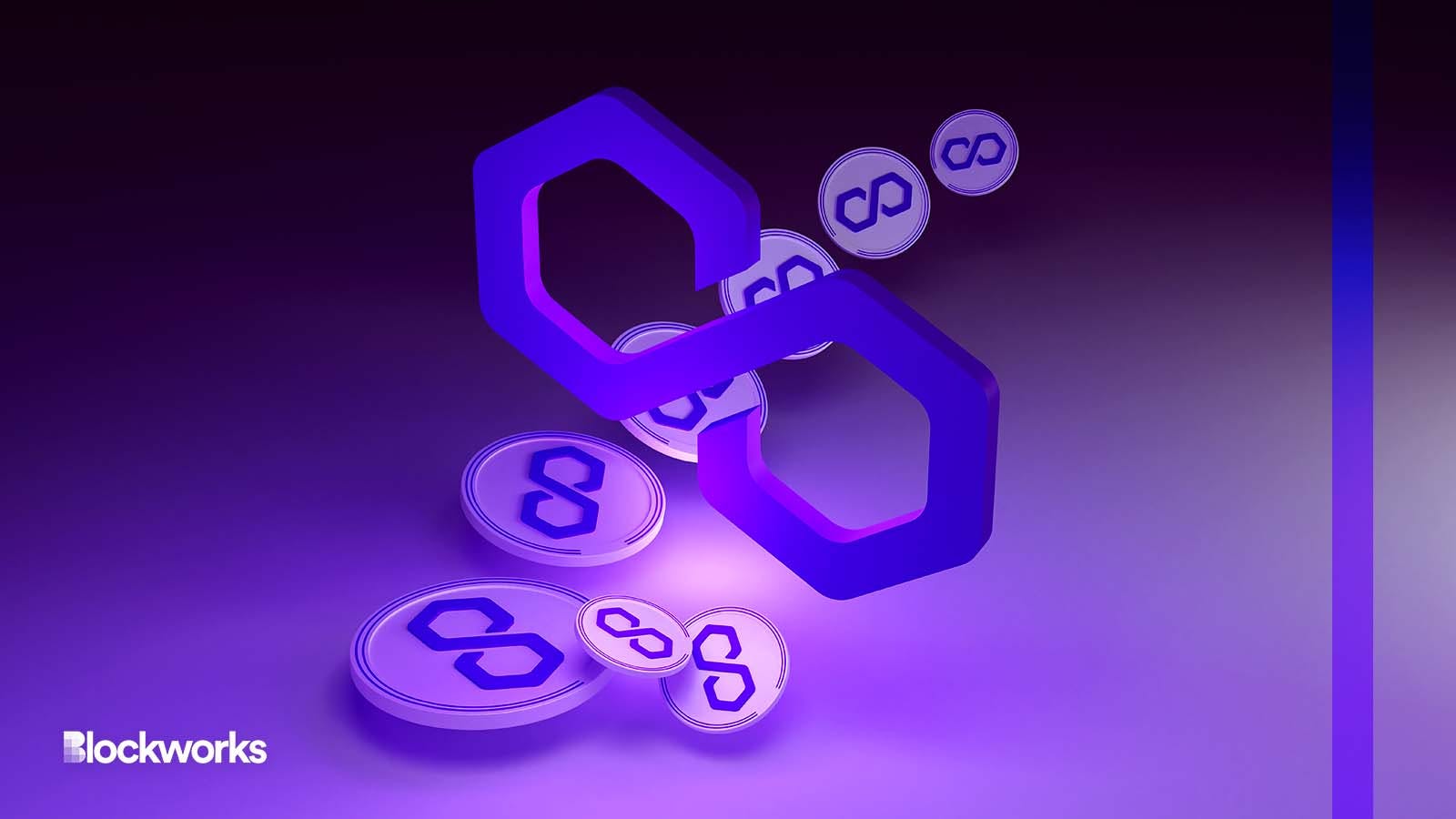Proudly un-American: Polygon 2.0 will be ‘developed and deployed outside US’ too
In the face of unfriendly US regulators and a divided Congress, are companies seeking to highlight overseas focus as a strength?

CryptoFX/Shutterstock modified by Blockworks
Polygon, the platform builder for Ethereum scaling, recently unveiled their upcoming project known as Polygon 2.0. Polygon Labs and its ecosystem partners have been hinting at this development on Twitter for several days, often emphasizing the number 2.
Initial details are scant, but Polygon is laying claim to the “value layer” of the internet — a concept that nearly all blockchains aspire to achieve, including Ethereum itself.
“Over the coming weeks, we will detail each component of Polygon 2.0, addressing topics like the future of the Polygon PoS chain, the utility and evolution of the Polygon token, and the transition to greater community governance of the protocol and treasury,” Polygon said in a blog post.
Emphasis on community decisions made outside the US
Polygon’s native token (MATIC) has been in retreat since the SEC name-dropped it in its pending Coinbase and Binance lawsuits. That prompted Robinhood to delist the token days later, effective June 27.
The communications response from Polygon following the SEC’s latest actions emphasized its roots outside the US, as well as the technical role of the MATIC token in staking to provide network security to Polygon’s PoS layer-1 network.
“We are proud of the history of the Polygon network — developed outside the US, deployed outside the US, and focused to this day on the global community that supports the network,” Polygon tweeted. “MATIC was a necessary part of the Polygon technology from Day 1, ensuring that the network would be secure — and remains so to this day.”
Originally called the Matic Network, prior to its Polygon rebrand, the team conducted an ICO-style token sale in April 2019, raising $5.6 million, followed by several seed and venture funding rounds, culminating in a private token sale that was good for $450 million.
The funding included participation from US investors and firms such as Kevin O’Leary, Galaxy Digital and Alexis Ohanian’s Seven Seven Six, but Polygon says although they “made sure MATIC was available to a wide group of persons,” its fundraising “did not target the US at any time.”
MATIC currently has no role in Polygon’s zkEVM rollup, although co-founder Mihailo Bjelic told Blockworks in July 2022 that upgrading the proof-of-stake chain was “probably the end goal.”
That appears to be the definite plan now, with the rollout of Polygon 2.0, described as “a network of ZK-powered L2 chains, unified via a novel cross-chain coordination protocol,” according to the blog post.
“For a user, the entire network will feel like using a single chain,” they said.
The announcement stressed that the community was calling the shots. “Only the Polygon community, who controls the Polygon protocol, has the right to accept and implement Polygon 2.0.”
Polygon Labs, of course, wields tremendous influence, so the extent of the community’s ability to exercise governance control is limited.
Other projects are similarly grappling with issues of decentralization and jurisdictional nexus as the US regulatory crackdown kicks into high gear.
“There’s no doubt that crypto will thrive. The only question is where,” Jake Chervinsky tweeted earlier today, in response to news of a16z’s new London office. “US policymakers need to think hard about whether this is the outcome they want,” he said.
But other teams have signaled their intention to stick it out, despite policy headwinds.
“The core dev teams of dYdX, Uniswap, Open Sea, Alchemy, and many other top web3 projects are still based here in the US,” said dYdX’s co-founder Antonio Juliano.
“There’s a reason for that. The US got tech so right all it has to do is be at least reasonable and it will win web3 too,” he said.
Get the news in your inbox. Explore Blockworks newsletters:
- The Breakdown: Decoding crypto and the markets. Daily.
- 0xResearch: Alpha in your inbox. Think like an analyst.






